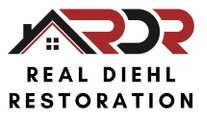Protect Your Home from Winter Water Damage: 5 Key Risks to Know
As the cold winter months set in, your home faces more than freezing temperatures. It also increases the risk of water damage, a hidden yet destructive threat that can lead to costly repairs and long-term problems.
Water damage during the winter can be particularly deceptive. It often occurs without warning, making it hard to prevent and even harder to fix. Whether from frozen pipes, snow, ice, or faulty appliances, winter water damage can affect your home in various ways.
Here's a look at 5 of the most significant winter water damage risks and what you can do to protect your property:
1. Frozen Pipes: The Silent Threat of Winter
Frozen pipes are one of the most dangerous and costly winter water hazards. When the temperature drops, water inside pipes can freeze, expanding and causing pipes to crack or burst. Once the pipes thaw, they can release water inside your walls, ceilings, or floors, potentially causing major flooding.
This type of water damage must be addressed quickly before becoming very costly. The longer the problem goes unnoticed or unattended, the worse the damage will become.
How to Protect Your Home:
Insulate exposed pipes in unheated areas like basements, attics, and garages.
Let faucets drip during extreme cold spells to relieve pressure in the pipes.
Keep thermostat up and manage drafts by sealing leaks around windows and doors.
2. Ice Dams and Roof Leaks: Water from Above
Winter storms may bring ice and even snowfall in Georgia. If snow accumulates on your roof, it can melt and refreeze along the edges, creating dangerous ice dams. This traps water, which can clog under shingles and get into your home, causing leaks in your attic or upper floors. Any water intrusion can damage your roof, ceilings, and insulation and even lead to mold growth.
How to Protect Your Home:
Roof insulation and ventilation are essential to prevent heat from escaping and melting snow unevenly.
Regular Maintenance and Inspections will identify issues and prepare you before a storm hits.
3. Clogged Gutters and Poor Drainage: Water That Can't Escape
Clogged gutters and downspouts with leaves and debris prevent melting snow or ice from escaping. This can cause water to gather at the foundation or leak into your walls and ceilings, leading to significant structural damage. Frozen gutters can also become weighed down with ice, risking damage to your gutter system and causing water to back up under shingles.
If water pools around your home's foundation, it can easily seep into your basement, causing flooding and long-term moisture damage.
How to Protect Your Home:
Clean your gutters regularly, especially before winter storms, to ensure proper drainage.
Check downspouts to make sure water is flowing away from your foundation.
Install gutter guards to help prevent clogs from leaves and debris.
4. Faulty Appliances and Burst Hoses: Hidden Leaks and Floods
Household appliances that rely on water, such as dishwashers and water heaters, can be troublesome in winter if they have any hidden issues. If these appliances develop leaks or their supply hoses burst due to the cold, it can cause severe water damage inside your home. Sometimes, these issues can go undetected for days, making the damage even more severe and expensive!
How to Protect Your Home:
Inspect appliances and hoses for signs of wear, rust, or leaks before the season starts.
Shut off water supply lines to appliances when not in use for extended periods.
5. Condensation and Humidity Issues: Water Inside Your Walls
Winter often brings cold, dry air, which can lead to indoor humidity problems. Indoor heaters can moisten the air, especially in basements, bathrooms, and kitchens. This moisture can condense on cold surfaces, causing water damage behind walls, windows, and floors.
Excess moisture can cause peeling paint, warped wood, mold, and mildew growth, leading to health problems and more costly repairs if left unchecked.
How to Protect Your Home:
Use dehumidifiers in high-humidity areas to keep moisture levels in check.
Ventilate your home properly by using exhaust fans in bathrooms and kitchens.
Consider installing a vapor barrier in basements and crawl spaces to reduce moisture accumulation.
If you experience winter water damage, acting quickly to prevent further destruction is essential. At Real Diehl Restoration, we specialize in 24/7 emergency water restoration services, offering:
Inspections to identify the source of the damage and assess repair requirements.
Immediate water extraction and drying services to minimize further damage.
Preventative measures to protect your home from future winter-related water issues.
Call Us at (678) 616-1990 to speak with one of our experienced technicians. We'll work quickly and efficiently to help you protect your home from further damage and restore peace of mind.
